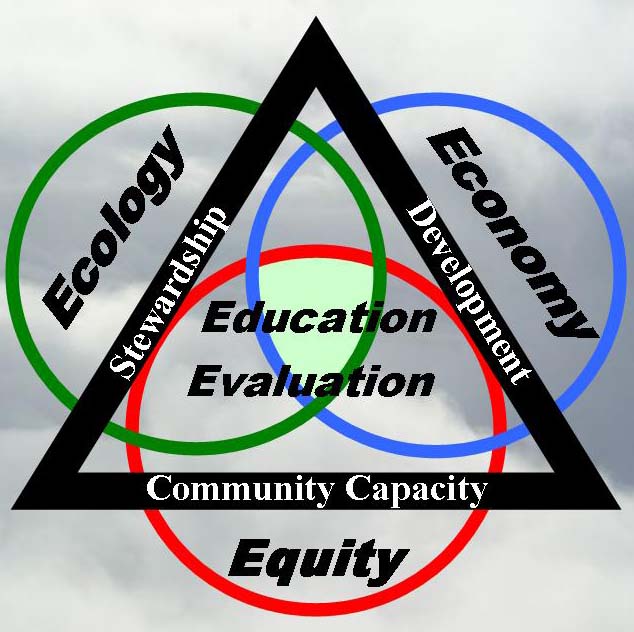In order to find
solutions to complex, multifaceted problems related
to our society living sustainably, today's students
must be exposed to techniques of teaching that directly
involve them in diverse, interdisciplinary collaboration,
the creative process, advanced technology, cross-cultural
communication, economic development, and environmental
ethics and values, to name a few. Complex economic/environmental
problems and the understanding of specific nature-society
issues demand the combined teaching talents from various
disciplines, capable of effectively crossing disciplinary
boundaries. Students must be trained to not only reason
in terms of traditional disciplines, but must also
be provided the ability to use this training in creative
thinking and problem-solving that in most instances
tends to merge understanding from a number of different
perspectives.
This integrative
approach will also produce a new generation of scientists
that are both sensitive to the intrinsic
value and inherent worth of the natural environment
and responsive to the fact that science and technology
should be used for nature's sake and not simply as
a means to exploit nature for society's continued use.
The goal is to
teach the real need for continued examination of linkages
among economic, social, technological, and environmental
issues in achieving a sustainable, global society through
the use of science. Students of environmental science
should also realize that issues involve moral choices
and that information from several disciplines enables
them to make more informed decisions. As more of society
becomes focused on sustainability and its philosophical
foundation, new dimensions are called for in education
and community learning/awareness.
Return
to Education and Awareness Programing
|


